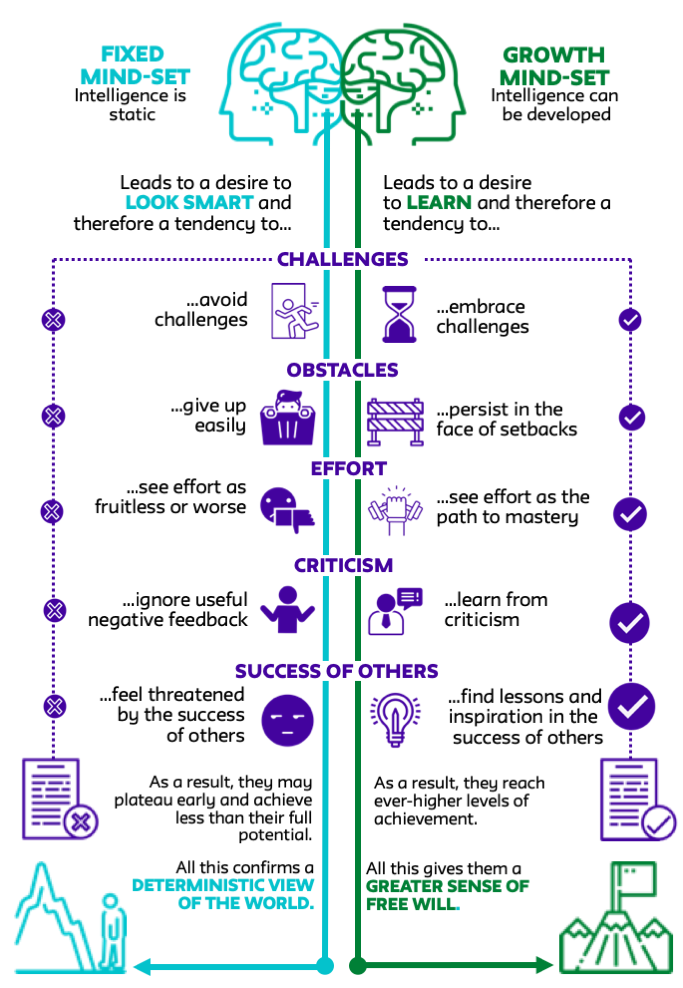Mindset
“In the fixed mindset, everything is about the outcome. If you fail—or if you’re not the best—it’s all been wasted. The growth mindset allows people to value what they’re doing regardless of the outcome . They’re tackling problems, charting new courses, working on important issues.”
― Carol S. Dweck, Mindset: The New Psychology of Success
There are various approaches to thinking about learning mindset. A very simple one and one easily explained to students, was promulgated by Carol Dweck, a Stanford psychologist, in her New York Times bestselling book, Mindset, focuses on how implicit frames of intelligence and ability influence motivation, learning and development. As Dweck defines it….
Fixed mindset is the belief that success or failure is governed by your innate talent or intelligence.
Fixed mindset leads to a desire to look smart and therefore a tendency to avoid challenges, give up easily, see effort as fruitless or worse, ignore useful negative feedback, and feel threatened by the success of others, as though if you have it, I don’t or can’t. As a result, students may plateau early and achieve less than their full potential. All of this confirms a deterministic view of their capability and is self-fulfilling and self-reinforcing: I think I can’t do something well and as a result, I don’t try as hard and therefore I don’t do well, and my assumptions are confirmed that I’m incapable.
Growth mindset is the belief that success or failure is governed by effective effort. It’s not the belief that you can do anything that you set your mind to, but that you are capable of learning and growing if you work smart.
Growth mindset leads to a desire to learn and therefore a tendency to embrace challenges, persist in the face of setbacks, see effort as the path to improvement, learn from feedback and criticism, and find lessons and inspiration in the success of others. Their success is proof that I can succeed too. As a result, they reach ever-higher levels of achievement. The effects of this approach have been demonstrated by numerous educators, such as Marva Collins and Jaime Escalante, by holding students accountable, having high expectations for their performance, and assuring them that working effectively can produce significant results.

Dweck and her team have created a substantial website, Mindsetworks, that elucidates the science behind the importance of growth mindset and how fixed mindset is detrimental to learning, along with additional resources including teacher practices and case studies.